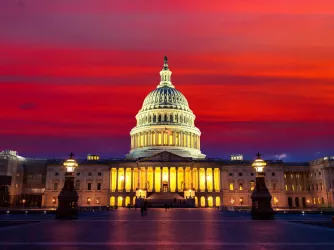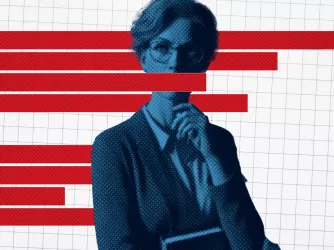Table of Contents
Truly Fostering Debate
Emily Ghods, on The New Criterion ’s Armavirumque blog, posts about a recent luncheon featuring Brown Professor of Political Science John Tomasi. At the luncheon, sponsored by the Center for the American University under the Manhattan Institute, Professor Tomasi discussed the Political Theory Project, a center he runs at Brown, and his “effort at Brown to achieve what he calls ‘the specter of intellectual pluralism.’”
Discussing a conversation she had with Tomasi after the lecture, Ghods writes:
He understands that to affect change from within, especially at Brown, patience and harmony are the only paths to victory. Contention and controversy would simply detach him and his program from the faculty and administration. For this reason, the post-docs and speakers that he brings to Brown express opinions that run the gamut of intellectual thought. His program hosts ‘debates’ rather than monolectures on conservative principles. His courses on political and economic thought teach Marx but also teach Hayek.
The website for the Political Theory Project provides more information on the values and ideas that drive Tomasi and the Project. The introduction on the homepage states, “the Project creates at Brown a space where students of good faith, and diverse viewpoints, can come together to debate one another other, freely and passionately, about the most pressing political problems of our day.” The homepage also links to an article written about the Project in The Brown Spectator. Kristina Kelleher describes the Janus Forum lecture series, a series sponsored by the Project. She writes:
Each lecture brings together two well-known academics with opposing opinions on relevant social and political topics. The Janus steering committee determines the topic each event addresses and its opposing participants. The committee is composed of representatives from The College Democrats, The College Republicans, Queer Alliance, ACLU, Reformed University Fellowship, and Democracy Matters.
All of this is refreshing when The Torch too often relates stories of censorship, both by students and professors, protests which aim to silence instead of engage speakers and events, and speech codes that, whether well-intentioned or not, only stifle robust debate. Tomasi shows a faith in students that critics from within and outside the academy tend to lack. Commentators from all points in the political spectrum have spoken as if students do not have the intellectual or critical capacity to sort through all sides of an argument and determine where they stand (to be fair, some of these commentators also lament that all sides are seldom presented, a legitimate concern). Tomasi seems confident that his students have the ability to decide for themselves what they believe in.
Additionally, Tomasi seems not only dedicated to presenting students with all sides of an argument but also in facilitating productive debate. As I stated in a previous blog post about labels, too many students (and professors and commentators) believe that the only way to effect change, be heard, or express disagreement with another is to stir controversy or throw a fit. Instead of engaging arguments they don’t like, they attach invidious labels to their opponents in an attempt to discount the arguments and speakers. On the Director’s Welcome page of the Project’s website, Tomasi briefly discusses the dangers of labels. He begins by stating that one of the central beliefs of the Project is that “critical thinking about politics must cash out into testable claims about our social world.” For Tomasi, a certain set of norms has provided modern societies “with a measure of stability, wealth, and well-being.” Recognizing the fluid nature of such terms, he writes:
Of course, each of these norms is subject to multiple interpretations. Some of these interpretations may be woven into patterns and then folded neatly under some one ideological label or another. At the Political Theory Project, we are not interested in such labels. Indeed, discourse at the level of labels is a central characteristic of the internalized, mono-disciplinary forms of discourse to which we mean to provide an alternative. The Political Theory Project is determined to provide a space at Brown where students and faculty can go beneath the labels.
Students, faculty, administrators, and all interested in the health and future of our colleges and universities should read about the Political Theory Project. With more programs like it, students will truly benefit from the intellectual and cultural diversity that schools spend so much time, energy, and money working to achieve.
Recent Articles
FIRE’s award-winning Newsdesk covers the free speech news you need to stay informed.

VICTORY: FIRE lawsuit leads California to halt law penalizing reporters, advocates, and victims who discuss publicly known information about sealed arrest records

O holy fight: New Hampshire Satanic Temple statue threatened by more than vandals

FIRE to Congress: More work needed to protect free speech on college campuses
